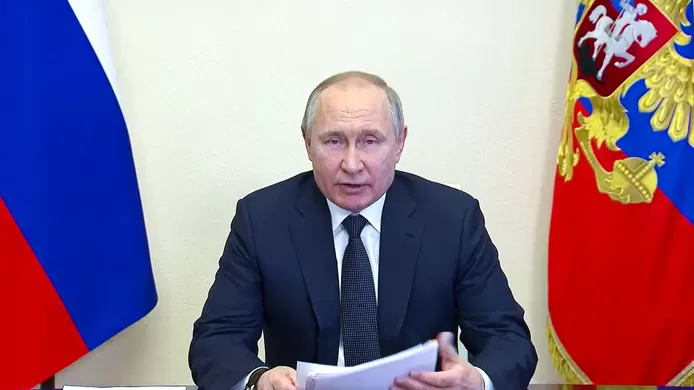The Russian economy has been “catastrophically paralyzed” since the introduction of Western sanctions and the departure of more than a thousand international companies following the invasion of Ukraine. That’s according to a new study from Yale University.
The detailed academic study was pre-published on the Social Science Research Network (SSRN) and has yet to be reviewed by other scientists. But, among others, Lieutenant General Marc Thys, the number two of Defense in Belgium, already calls it a “very interesting paper” that shows that the sanctions work, “despite the carefully constructed good news show from Moscow”.
The researchers
According to the researchers, the Kremlin has been spreading only positive reports about the Russian economy since the raid and has resolutely brushed aside unfavorable statistics. This gave rise to the idea that the international front against Russia has turned into an economic war of attrition that is taking its toll on the West, due to the perceived resilience and prosperity of the Russian economy. “That is not correct, and economic projections based on Kremlin figures are unrealistically favorable for Russia.”
Data sources
So what is the real state of the Russian economy, five months after the invasion and the introduction of Western sanctions? Particularly bad, according to the researchers’ data sources.
For example, Russia’s strategic position as an exporter of raw materials has irrevocably deteriorated. “It now has to counter the loss of its key markets from a weak position. The country also faces major challenges as it moves to shift its focus to Asia, with non-replaceable exports such as gas.”
Russian imports have also largely collapsed. “Russia now needs to get critical parts and technology it needs from reluctant trading partners, and this leads to widespread supply shortages in the domestic economy,” the report said.
In the meantime, domestic production has come to a complete standstill. “Putin is failing to replace lost companies, products, and talents, despite his delusions about self-sufficiency and replacing imports. All this has led to rising prices and fear among consumers.”
According to the researchers’ calculations, the thousand international companies that have already left Russia to represent about 40 percent of the gross domestic product (GDP). “As a result, almost all foreign investment of the past three decades has been lost. At the same time, an unprecedented flight of capital and population has arisen, and it’s about a massive exodus from the country’s economic base.”
In response, Putin would resort to “drastic and clearly unsustainable fiscal and monetary measures”. “But that cannot prevent the government budget deficit for the first time in years and its foreign reserves being exhausted,” it said. “Despite high energy prices, the Kremlin’s finances are much worse than is generally believed.”
It makes Russia’s domestic financial markets the worst performing in the world this year, despite strict capital controls. “They reflect the continued weak economy, with a contraction in liquidity and credit. In addition, Russia is cut off from international financial markets, limiting its ability to tap capital.”
The future doesn’t look very bright either, according to the study. “As long as the West continues to unite in maintaining and increasing sanctions pressure, there will be no turning back for Russia from economic oblivion,” the researchers conclude. “Anyone who claims that the Russian economy has bounced back is not telling the truth. She’s reeling, and it’s not the time to hit the brakes.”
